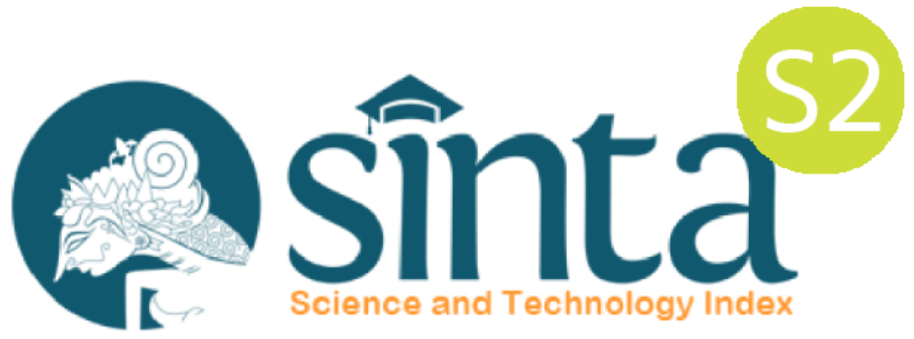KEMAMPUAN PENALARAN MATEMATIS SISWA DALAM MEMECAHKAN MASALAH ALJABAR BERDASARKAN GAYA KOGNITIF FIELD INDEPENDENT
DOI:
https://doi.org/10.35316/alifmatika.2019.v1i1.61-73Keywords:
mathematical reasoning, algebra problems, cognitive styles, field independent.Abstract
This research aims to describe the level of mathematical reasoning ability of students with field-independent cognitive styles in solving algebra problems. The research method used is a qualitative descriptive approach, using qualitative data then described to produce a clear and detailed picture of students' mathematical reasoning with independent field cognitive style in solving algebra problems. The subjects of the research were Class VIII students’ of SMP Negeri 47 Surabaya. The main Instrument in this study is the researchers themselves. Instrument supporters in this research is divided into 2 kinds of Tests, namely the task of problem solving algebra, and guidelines for the interview. Data collection Techniques in the study carried out using two techniques, namely written tests and interviews. The process of data analysis in this study refers to qualitative data analysis process, namely the reduction of data, presenting the data, and draw conclusions. the results of this research indicate that (1) able to conduct an investigation of the problems faced thoroughly, (2) able to plan problem solving by connecting various related information, (3) able to use the strategy chosen correctly and correctly, and (4) able to re-examine, evaluate, and draw valid conclusions based on the solution of the problem obtained. In addition, the results of this study indicate that the level of mathematical reasoning ability of students is in the category sufficient to meet the mathematical reasoning indicators of field-independent cognitive style.
Downloads
References
Akramunnisa, A. S. (2017). Ability Analysis Based on Math Problem Completing The Early Math Skills and Cognitive Style on Class VIII SMPN 13 Makassar. Jurnal Daya Matematis, 5(1), 14.
Andriyani, A. (2018). Analisis Kesalahan Siswa dalam Menyelesaikan Soal Cerita pada Materi Program Linear Ditinjau dari Gaya Kognitif Siswa. Pendekar: Jurnal Pendidikan Berkarakter, 1(1), 16–22.
Annur, M. F., Sujadi, I., & Subanti, S. (2016). Aktivitas Metakognisi Siswa Kelas X SMAN 1 Tembilahan dalam Pemecahan Masalahan Matematika Ditinjau dari Gaya Kognitif. Jurnal Pembelajaran Matematika, 4(7).
As’ari, A. R., Tohir, M., Valentino, E., Imron, Z., & Taufiq, I. (2017). Buku Guru Matematika (Revisi). Jakarta: Pusat Kurikulum dan Perbukuan, Balitbang, Kemendikbud.
Erviana, T. (2019). Penalaran Siswa SMP dengan Gaya Kognitif Field Dependent dalam Memecahkan Masalah Aljabar. Prosiding Silogisme, 1(1).
Khoiriyah, N. (2013). Analisis Tingkat Berpikir Siswa Berdasarkan Teori Van Hiele pada Materi Dimensi Tiga Ditinjau dari Gaya Kognitif Field Dependent Dan Field Independent (Penelitian Dilakukan di SMA Negeri 1 Mojolaban Kelas X Tahun Ajaran 2011/2012).
Maswar. (2017). Analisis Statistik Deskriptif Nilai UAS Ekonomitrika Mahasiswa dengan Program SPSS 23 & Eviews 8.1. Jurnal Pendidikan Islam Indonesia, 1(2), 273–292. https://doi.org/10.35316/jpii.v1i2.54
Ngilawajan, D. A. (2013). Proses berpikir siswa SMA dalam memecahkan masalah matematika materi turunan ditinjau dari gaya kognitif field independent dan field dependent. PEDAGOGIA: Jurnal Pendidikan, 2(1), 71–83.
Rizta, A., Zulkardi, Z., & Hartono, Y. (2013). Pengembangan Soal Penalaran Model TIMSS Matematika SMP. Jurnal Penelitian Dan Evaluasi Pendidikan, 17(2), 230–240.
Rosa, E. (2017). Pengaruh Penerapan Model Pembelajaran Matematika Knisley (MPMK) Menggunakan Media Petak Warna-Warni Terhadap Kemampuan Pemahaman Matematis Siswa Dalam Pembelajaran Segitiga di Kelas VII MTs. Putra-Putri Simo. INSPIRAMATIKA: Jurnal Inovasi Pendidikan Dan Pembelajaran Matematika, 3(1), 43–52.
Slavin, R. E. (2008). Educational psychology: Theory and practice (Terjemahan Marianto Samosir). Jakarta: PT Indeks.
Sujono. (2001). Pengajaran Matematika Untuk Sekolah Menengah. Jakarta: Depdikbud P2LPTK.
Sumartini, T. S. (2015). Peningkatan Kemampuan Penalaran Matematis Siswa Melalui Pembelajaran Berbasis Masalah. Mosharafa: Jurnal Pendidikan Matematika, 4(1), 1–10.
Thalhah, S. Z., Tohir, M., Nguyen, P. T., Shankar, K., & Rahim, R. (2019). Mathematical Issues in Data Science and Applications for Health care. International Journal of Recent Technology and Engineering, 8(2S11), 4153–4156. https://doi.org/10.35940/ijrte.B1599.0982S1119
Tohir, M. (2017). Pengembangan Bahan Ajar Olimpiade Matematika Berdasarkan Model Pemecahan Masalah untuk Meningkatkan Kemampuan Penalaran Matematis Siswa. In Tesis. Magister Pendidikan Matematika Universitas Jember. https://doi.org/10.13140/RG.2.2.31121.79200
Tohir, M. (2019). Peningkatan Kompetensi Guru Pembina Olimpiade Matematika Siswa Sekolah Menengah Pertama Kabupaten Madiun. As-Sidanah: Jurnal Pengabdian Masyarakat, 1(2), 199–226. https://doi.org/10.35316/assidanah.v1i2.587
Tohir, M., Susanto, Hobri, Suharto, & Dafik. (2018). Students’ Creative Thinking Skills in Solving Mathematics Olympiad Problems Based on Problem-Solving Polya and Krulik-Rudnick Model. Advanced Science Letters, 24(11), 8361–8364. https://doi.org/10.1166/asl.2018.12563
Tohir, M., & Wardani, A. (2016). Analysis of Prospective Mathematics Teachers Ability in Applying Scientific Approach Based The Curriculum 2013. Proceedings of The National Seminar on Mathematics Education, 431–446. https://doi.org/10.13140/RG.2.2.35316.09603
Wooldridge, B., & Haimes-Bartolf, M. (2006). The field dependence/field independence learning styles: Implications for adult student diversity, outcomes assessment and accountability. Learning Styles and Learning, 237–257.
Downloads
Published
How to Cite
Issue
Section
License
COPYRIGHT NOTICE
Author (s) who publish in Alifmatika: Jurnal Pendidikan dan Pembelajaran Matematika agree to the following terms:
- The Author (s) submitting a manuscript do so on the understanding that if accepted for publication, copyright of the article shall be assigned to Alifmatika: Jurnal Pendidikan dan Pembelajaran Matematika, Tarbiyah Faculty of Ibrahimy University as the publisher of the journal. Consecutively, author(s) still retain some rights to use and share their own published articles without written permission from Alifmatika: Jurnal Pendidikan dan Pembelajaran Matematika. This work is licensed under a Creative Commons Attribution-ShareAlike 4.0 International License.
- Copyright encompasses rights to publish and provide the manuscripts in all forms and media for the purpose of publication and dissemination, and the authority to enforce the rights in the manuscript, for example in the case of plagiarism or in copyright infringement.
- Alifmatika: Jurnal Pendidikan dan Pembelajaran Matematika and the Editors make every effort to ensure that no wrong or misleading data, opinions or statements be published in the journal. In any way, the contents of the articles and advertisements published in Alifmatika: Jurnal Pendidikan dan Pembelajaran Matematika are the sole responsibility of their respective authors and advertisers.
- The Copyright Transfer Form can be downloaded here [Copyright Transfer Form Alifmatika]. The copyright form should be signed originally and send to the Editorial Office in the form of original mail, scanned document to alifmatika[at]ibrahimy.ac.id or upload the scanned document in the comments column when sending the manuscript.























_by_Matematohir.jpg)






